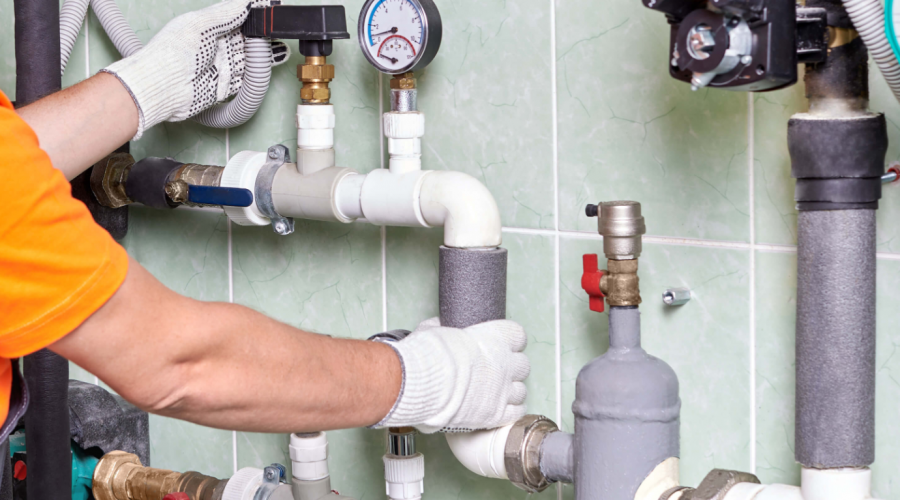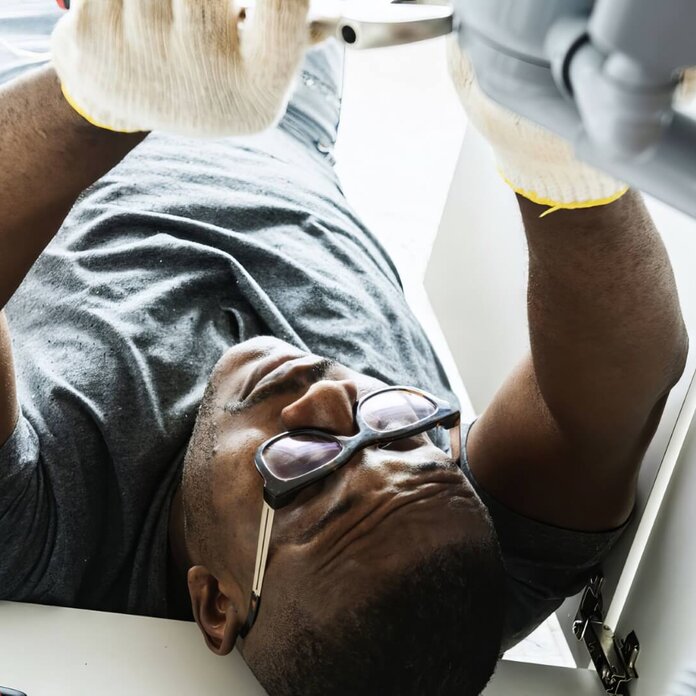Temporary Tips for Critical Situations: Steps to Follow Until Help Arrives
Temporary Tips for Critical Situations: Steps to Follow Until Help Arrives
Blog Article
What're your thoughts and feelings on Expert Tips for Managing a Plumbing Emergency Until Help Arrives?

Pipes emergency situations can strike at any moment, creating stress and possible damages to your home. Whether it's a burst pipeline, a clogged drain, or a dripping faucet, recognizing exactly how to take care of the situation till a professional plumbing shows up can conserve you from further issues. This article provides necessary emergency situation pipes suggestions to assist you minimize damage and restore control throughout a plumbing dilemma.
Shut off the Water
The first step in any kind of plumbing emergency is to turn off the water. For localized issues, such as a dripping tap or toilet, turn off the valve near the fixture. When it comes to a significant leakage or ruptured pipe, locate your home's primary water shut-off shutoff and transform it off instantly. Understanding the area of these shutoffs in advance can save important time throughout an emergency situation.
Address Tiny Leakages with Temporary Fixes
Little leakages can swiftly become considerable issues if left untreated. Utilize these momentary solutions till specialist help arrives:
While these solutions aren't irreversible, they can help minimize water loss and damage.
Unclog Drains Pipes Safely
A blocked drainpipe can be an irritating and messy problem. Right here's just how to tackle it:
If these methods do not function, prevent using excessive pressure, as it might intensify the obstruction.
Handle Overflowing Toilets
An overflowing toilet can trigger instant mayhem. Here's what you should do:
Shut down Your Water Heater
In particular emergency situations, such as a burst pipeline, it's a good idea to shut off your hot water heater. This protects against overheating or damages to the system when water stops moving. Switch off the power supply to the water heater (electrical or gas) and allow it cool down to stay clear of prospective threats.
Briefly Quit a Burst Pipeline
A burst pipeline can result in substantial water damage in minutes. To minimize the issue:
Call a specialist plumbing quickly to address the issue permanently.
Take Care Of Frozen Pipes Very Carefully
In cooler climates, frozen pipelines are a common emergency. If you presume an icy pipeline:
Avoid More Damage
Taking fast action to decrease damage can conserve you time and money in the future. Below's how:
. Have an Emergency Pipes Package
Prepare a standard plumbing emergency package to handle minor problems effectively. Your kit must consist of:
Having these tools accessible can make a considerable distinction in your capacity to handle emergency situations.
Know When to Call a Professional.
While quick fixes can assist momentarily, certain pipes issues call for immediate expert focus. Call a plumbing if:.
Without delay contacting an expert makes certain the concern is resolved correctly and avoids additional difficulties.
Conclusion.
Plumbing emergencies can be overwhelming, however with the ideal expertise and tools, you can manage the circumstance successfully till aid arrives. By turning off the water supply, dealing with little leakages, and making use of short-lived solutions, you can minimize damage and keep your home safe. Remember, these suggestions are short-term options; always speak with a certified plumbing to deal with the root cause of the problem. Preparation and quick thinking are your best allies in any plumbing emergency.
8 Helpful Tips for Managing Plumbing Emergencies at Home
If your plumbing system hasn’t failed once, wait for it because almost everyone has a story to tell. Sometimes, it could be simple emergencies such as a leaking pipe, a blocked cistern, or even a big burst pipe. In situations like this, you need to have some handy tips to save you some money and from possible damages.
Take care of minor issues early.
Sometimes, you could have avoided an emergency by taking proactive measures while it was still early. Some major plumbing emergencies can be a result of an ignored minor issue. We recommend that you have items like plumbing tapes and other related items. A plumbing tape can allow you to manage minor leaks before the plumber arrives.
Cut off the water supply.
This tip is essential in almost any type of leakage problem. For problems like minor leakages in the toilet or kitchen, turn off the supply that takes water to the affected pipes. If the leakage is a major pipe, you must shut off the supply valve to the entire building. This will help you avoid flooding your home and neighbors if you share a flat.
Know your plumbing system
Folks typically move into a new apartment without understanding the water supply around the building. This can prove disastrous if a water emergency arises and the plumber is far away. The previous tip will prove useless if you don’t practice this one. More importantly, know where your water shut-off valve is located – you’ll need that knowledge to prevent potential home floods.
Have some common handy tools
There are lots of plumbing emergencies that you can handle without hiring a plumber. That’s why you must keep some tools available always. Some tools that you can use to fix simple plumbing emergencies easily include plumbing tapes, screwdrivers, thread seal tapes, plungers, pliers, tape measures, and rubber gloves.
Insulate your pipes from cold
You’ll save yourself from many plumbing expenses if you protect your water pipes from the cold. This is because of the harmful effects that cold weather can have on your pipes. During winter, your pipes can burst from being overly expected to freezing temperatures. So, make sure insulators are there to keep the pipes working correctly.
Avoid practices that will clog your toilet.
Many people indulge in practices that can damage the plumbing system of the entire building. One of these is when they use their toilet to dispose-off garbage. They flush all kinds of things, such as paper towels, bandages, hairs, female sanitary products, etc., down the toilet. This will block your toilet in the long run, incurring unnecessary expenditures. Dump such waste in the trash instead.
Check your dials regularly.
Sometimes, there could be leakages in your home without noticing them in time. So, constantly monitor your water meter dial. If the dial is reading when there is nobody using water, this is an indicator that there is leaking. Check for leaks immediately. Call a plumber as soon as possible if you can’t find any.
https://www.constructionplacements.com/8-helpful-tips-for-managing-plumbing-emergencies-at-home/

As a serious person who reads about Expert Tips for Emergency Plumbing Repairs, I was thinking sharing that piece of content was essential. Sharing is good. One never knows, you may very well be doing someone a favor. I am grateful for being here. Please pay a visit to our blog back soon.
Get Estimate Report this page